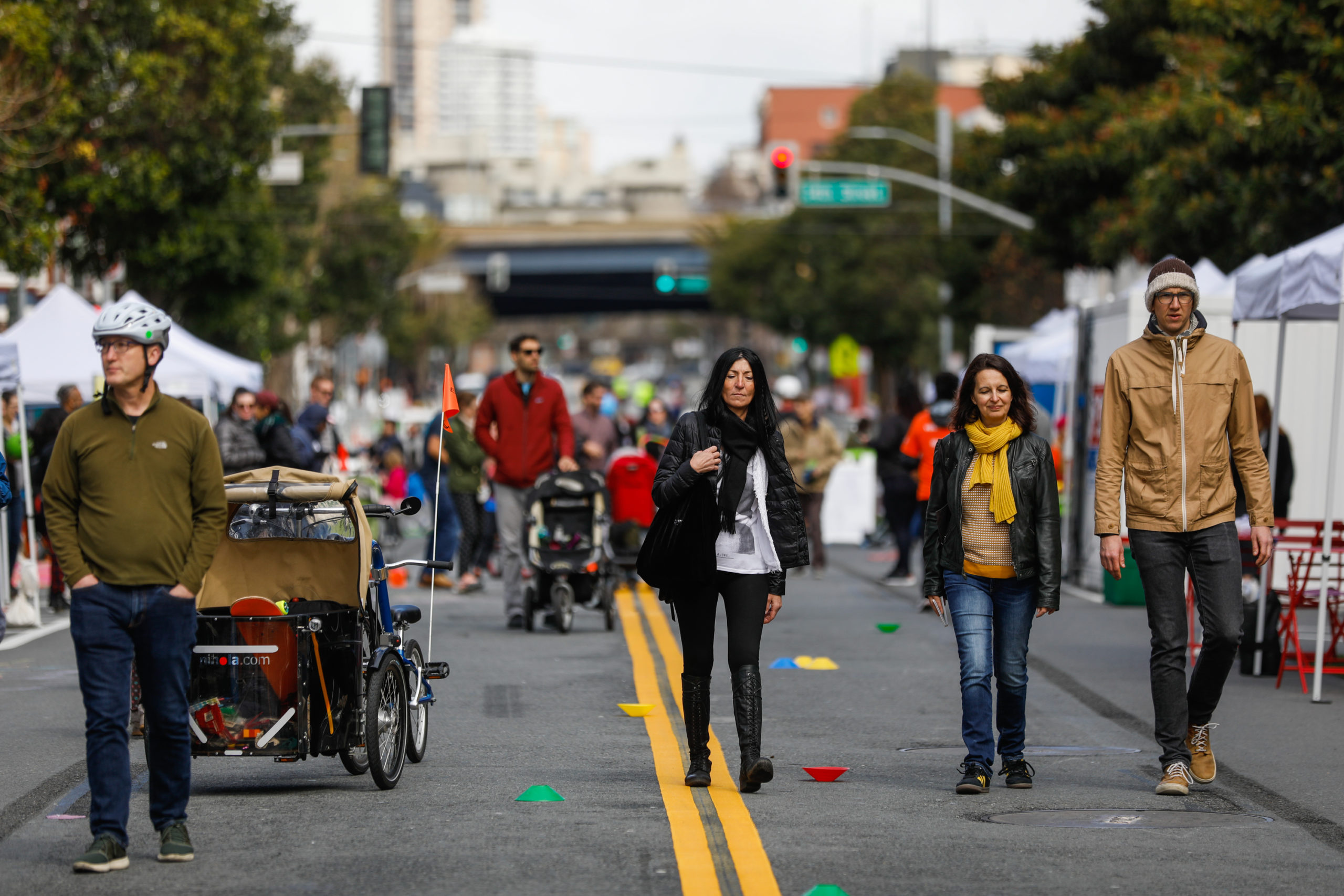Car-free sections of Valencia Street have become leisurely oases for shoppers, diners and pent up pedestrians during the pandemic and—according to new Yelp data— these automobile-free zones may be an avenue for local businesses to grow in the future.
In an analysis, Yelp examined “consumer interest,” measured through page views, reviews and photos, of a section of Valencia Street in San Francisco’s Mission District and four other corridors in U.S. cities that similarly restricted vehicle traffic.
Valencia between 16th and 19th streets, which became pedestrian-only on Thursdays through Sundays last year, saw an 18% boost in consumer interest relative to San Francisco as a whole. Notably, consumer interest remained elevated even on days when streets weren’t closed, with Yelp counting a 17% increase in interest on Mondays through Wednesdays during the closure.
“Not only did the [street closure] initiatives increase consumer activity in the areas when the streets were closed to cars, but the initiatives also spurred increased interest in the area generally, even when the streets were not closed to traffic,” said Kathleen Liu, a spokesperson at Yelp.
The company found similar results in other cities that established car-free streets in commercial corridors, with consumer interest increasing by 12% to 61% in sections of Boston, Chicago, Boise and Burbank.
Although Yelp’s data is limited—it doesn’t include activity at retail or other businesses, for example—the consumer interest metric bodes well for restaurants and bars located on streets that restrict car traffic.
Following a three-month trial period last summer, the partial street closure on Valencia was revived in February 2021 and will run through the end of June. A section of Grant Avenue and Commercial Street in Chinatown is also closed to traffic on Saturdays and Sundays, allowing restaurants to set up outside and pedestrians and bicyclists to use the whole street. Other partial street closures are in effect in corridors across the city through programs such as Slow Streets and Shared Spaces, the latter of which allows businesses to operate outdoors on sidewalks, streets and open lots.
“It’s very encouraging data that all this outdoor stuff is beneficial, but it’s too early to make conclusions,” said Sharky Laguana, president of the San Francisco Small Business Commission and an advocate of street closure programs like Shared Spaces.
“There are benefits that aren’t even fully captured in data yet,” Laguana added.
Restaurants and bars were disproportionately hurt by COVID-19, given that they were subject to some of the strictest restrictions locally and nationwide. Employment in San Francisco’s hospitality sector was still down 48% in March 2021 compared to the prior year. Opportunities for outdoor operations could help make small businesses, some of whom accrued heavy debt last year, whole again.
San Francisco has issued about 1,700 Shared Spaces permits since the program’s inception in July 2020, and local officials are hammering out a plan to make the program permanent. The program isn’t without its detractors, however, with some disability advocates expressing concern that a proliferation of outdoor tables could limit mobility. Some proprietors worry that a reduction in parking spaces could hurt their business, though there’s no evidence that that’s a widespread phenomenon. The Planning Commission surveyed 100 restaurants with an active Shared Spaces permit, and found that they generated an additional $82,000 in taxable sales between July 2020 and September 2020.
The Board of Supervisors Land Use and Transportation Committee is expected to vote on Shared Spaces legislation on May 24, and should it pass, the full board will vote on the measure in a subsequent meeting.
Check the Board of Supervisors Land Use and Transportation Committee’s website for meeting agenda updates and call-in information.
